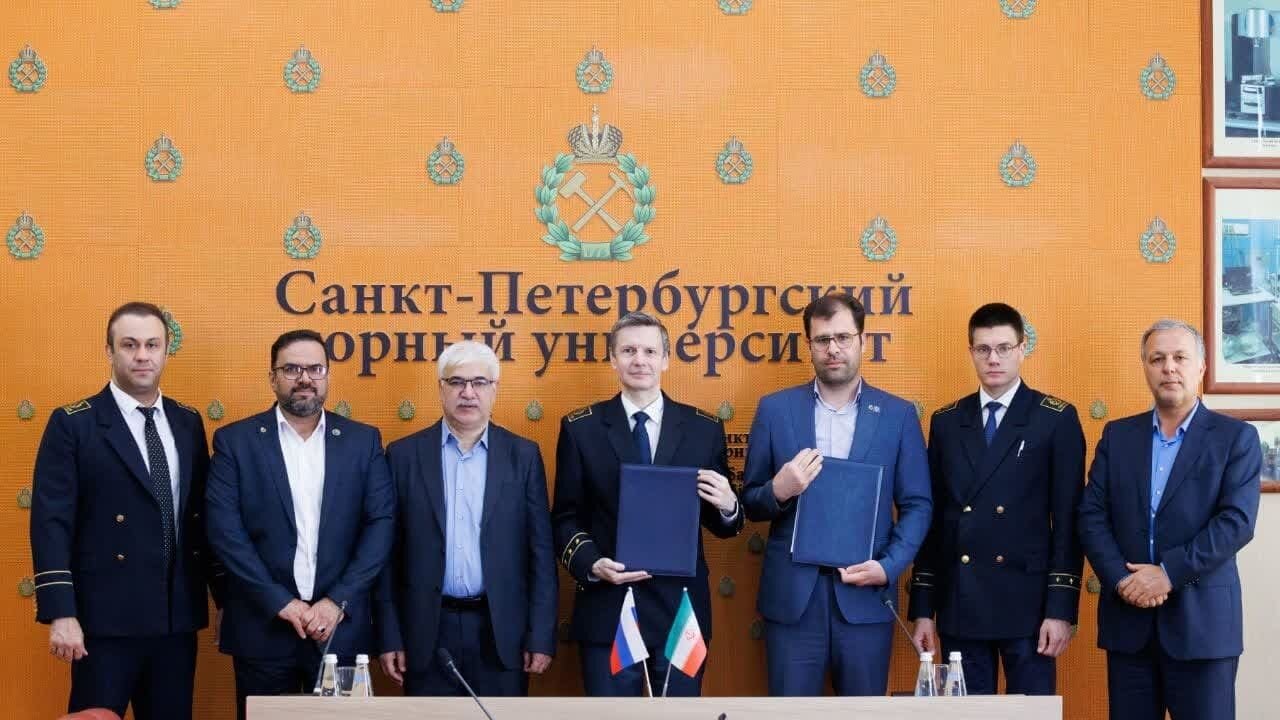Iranian, Russian universities ink 12 MOUs

TEHRAN – Shiraz University and St. Petersburg University have signed 12 memorandums of understanding (MOUs) to boost cultural, educational, and research collaborations.
The main subjects of the MOUs include enhancing cooperation among faculty members of the two universities, granting scholarships to ten PhD students, conducting summer school for Iranian students by St. Petersburg University as well as winter schools for Russian students by Shiraz University, Mehr news agency reported.
As a part of the agreement, each university will establish a specialized center within the other institution.
The cooperation will also include utilizing the excavation training and research center of Saint Petersburg University by Shiraz University, conducting joint research, holding joint specialized geological training courses for the students from the two universities, as well as holding specialized training courses for Iranian mining engineers by St. Petersburg Mining University.
According to Forpost-sz, a delegation from the St. Petersburg Mining University visited Shiraz University for the first time back in January.
During that visit, administrators, scientists, and young teachers from St. Petersburg studied in detail the methodology of the educational system of the Islamic Republic, and its scientific component, were acquainted with the work of the enterprises of Fars Province, held a number of negotiations with representatives of Iranian higher education, industrialists, employees of government agencies. They defined roadmaps for possible cooperation.
On their return to Russia, the proposals received were analyzed in detail, and on its basis, a competition between research teams was held within the framework of the project "Targeted Scientific Search".
The grant holders traveled to Shiraz again, of course, having received preliminary consent from their Iranian partners to work together.
Several promising topics were clearly "pulling" for future doctoral theses due to their relevance and demand for both countries. This was confirmed during the last visit.
Fostering scientific ties
In June, a delegation from Synergy University of Moscow paid a visit to Amir Kabir University of Technology in Tehran to explore ways to enhance scientific cooperation between the two institutions.
During a meeting, the two sides introduced their competencies and capabilities, IRNA reported.
Also, four programs on holding short-term joint courses in the fields of business management; professor and student exchange; Persian and Russian language teaching, and conducting joint interdisciplinary courses were developed to be implemented.
These training courses will cover business management; robotics and artificial intelligence; entrepreneurship and technology; smart cities; and information technology; as well as emerging and interdisciplinary fields.
As per the agreement, representatives from the two universities will hold an online meeting next month to discuss further details and ways to initiate the joint programs.
Joint courses on sustainable development
Iran and Russia have held a joint international course titled ‘Entrepreneurship and Future Skills’ aimed at fostering sustainable development and commercialization of ideas.
The three-month course was held at Amir Kabir University of Technology in Tehran, IRNA reported.
It was organized by the Russian Academy of Foreign Trade and the management faculty of Amir Kabir University of Technology.
Expanding international cooperation is one of the most important strategies of the management faculty of Amir Kabir University of Technology.
The objective of the course was to encourage teamwork to learn and generate ideas in business and sustainable development. Therefore, the course was designed based on learning and enhancing international interaction and participation via online collaboration between professors and students of the two countries.
A total of 30 Iranian and 30 Russian students took part in the course which was conducted with the cooperation of professors from both nations.
Completing a preliminary course, students in Iranian and Russian teams chose topics related to the challenges of sustainable development as well as the macro issues of their respective countries.
The students analyzed the topics and then conducted a comparative analysis of the situation in the two countries. The course helped student groups develop entrepreneurial business ideas in line with sustainable development goals.
MT/MG
